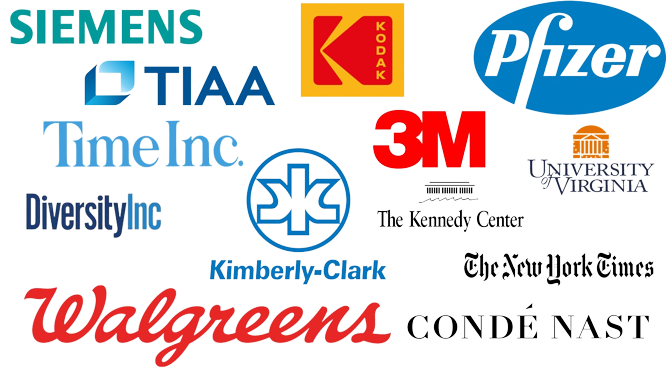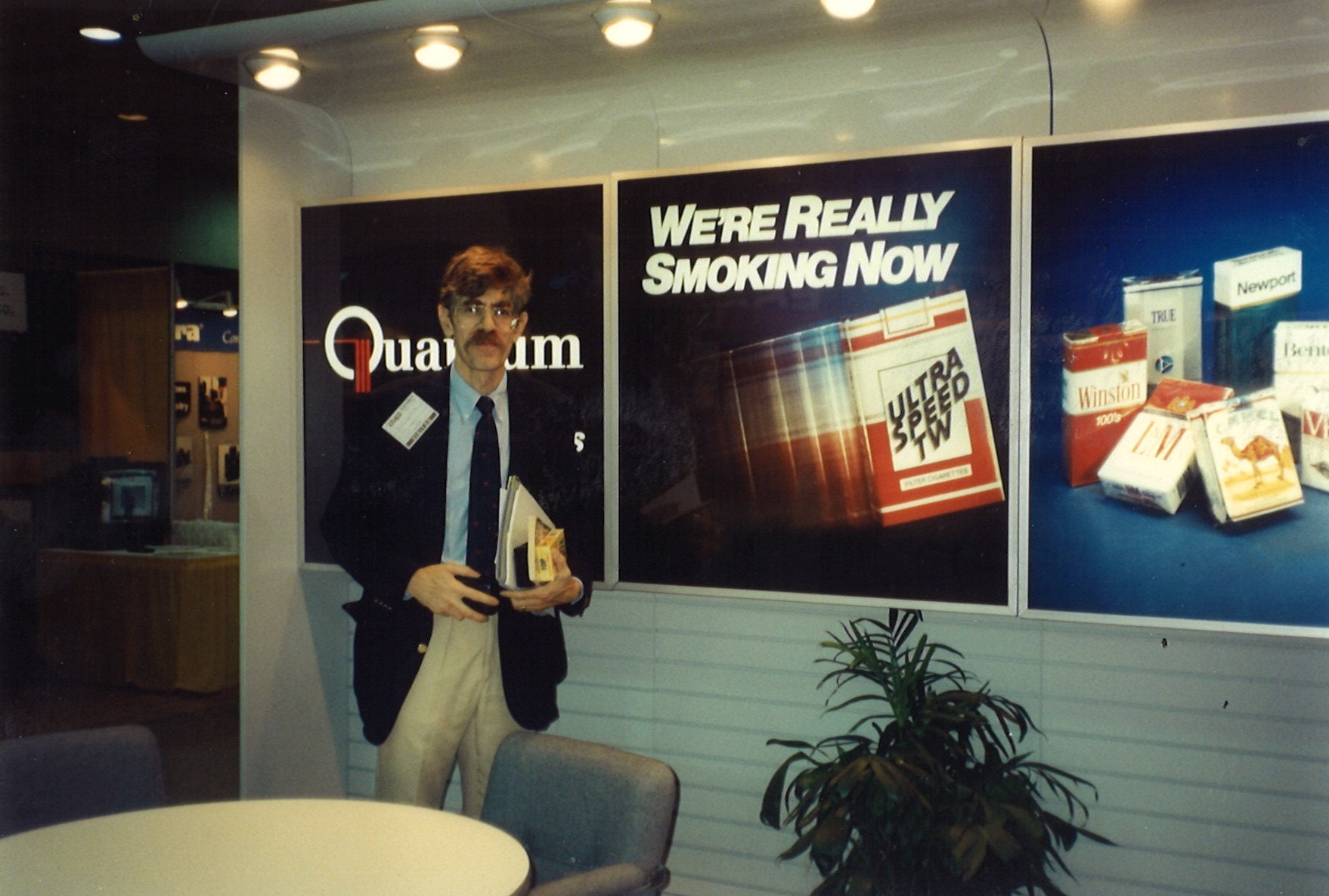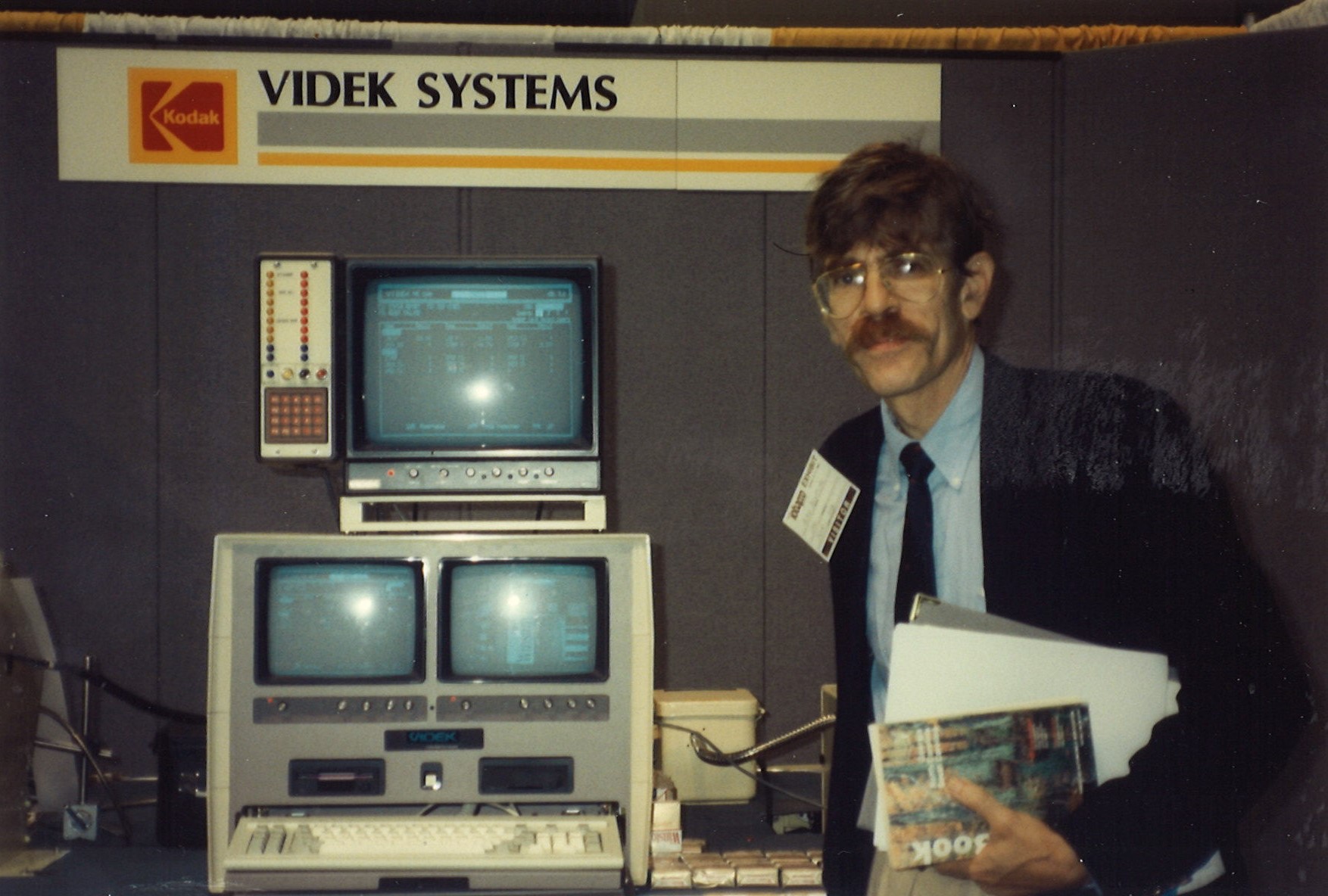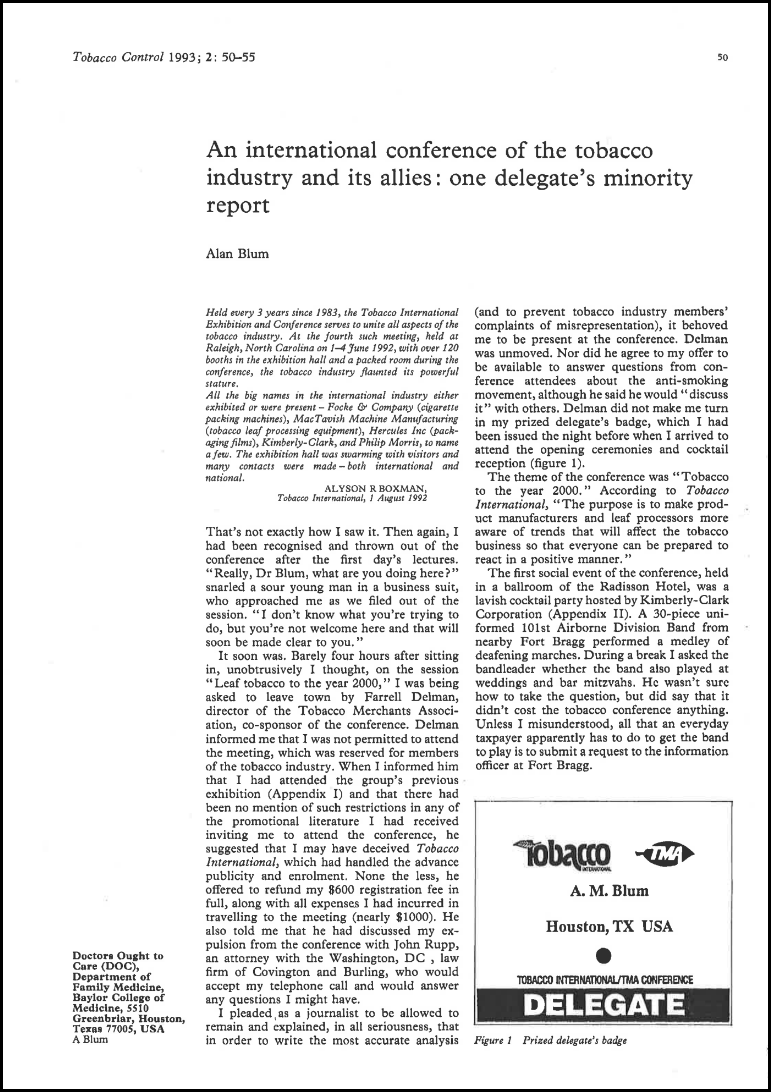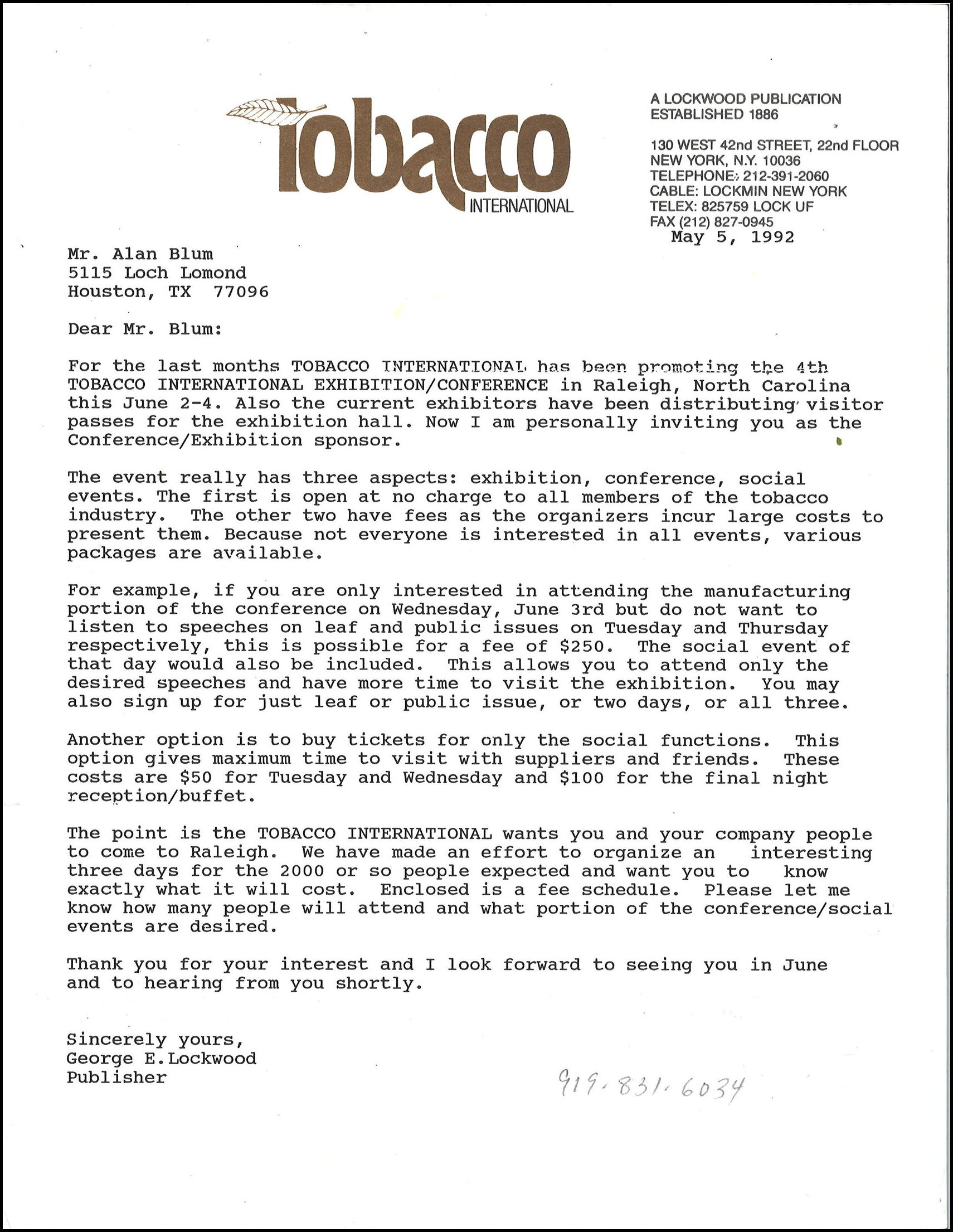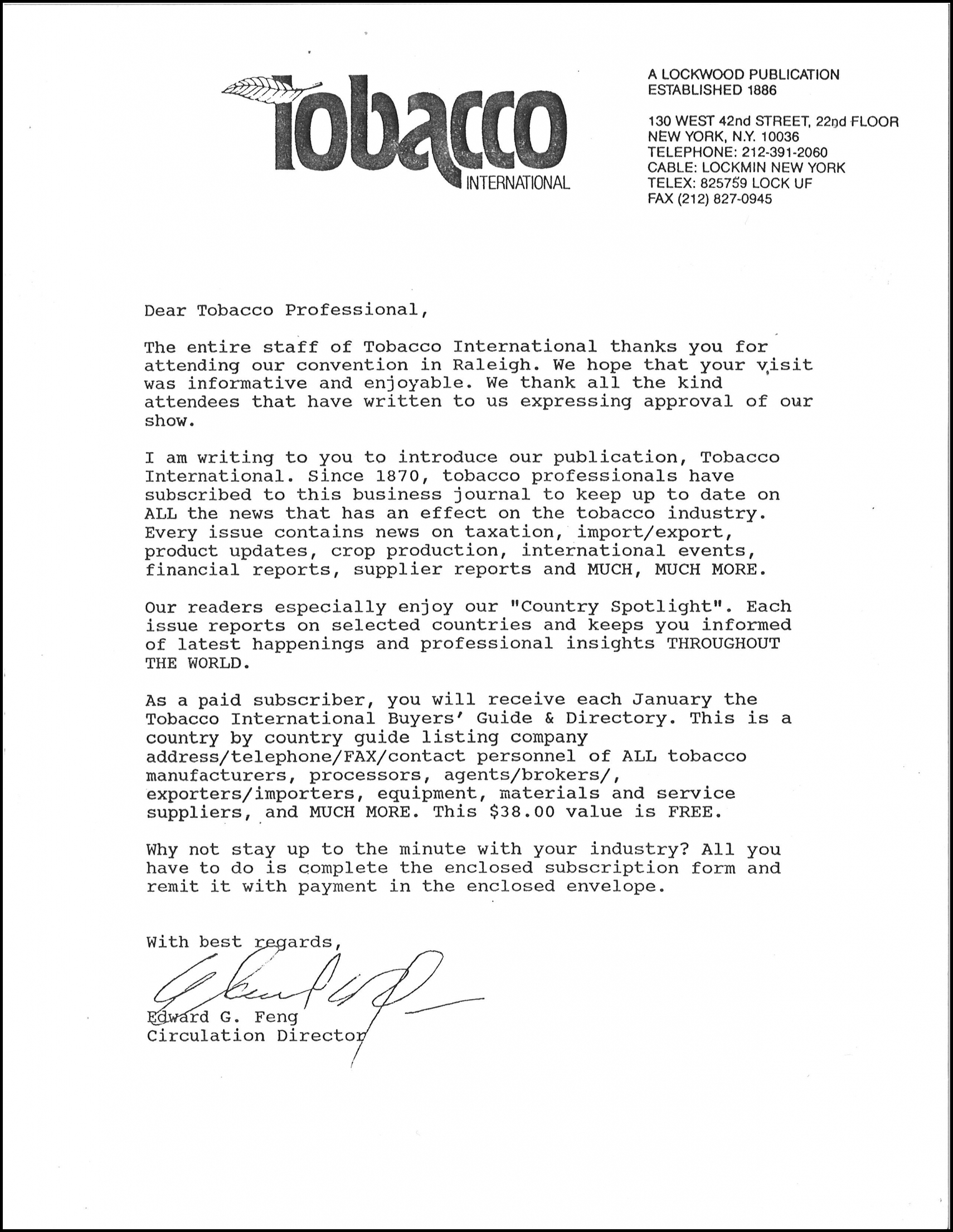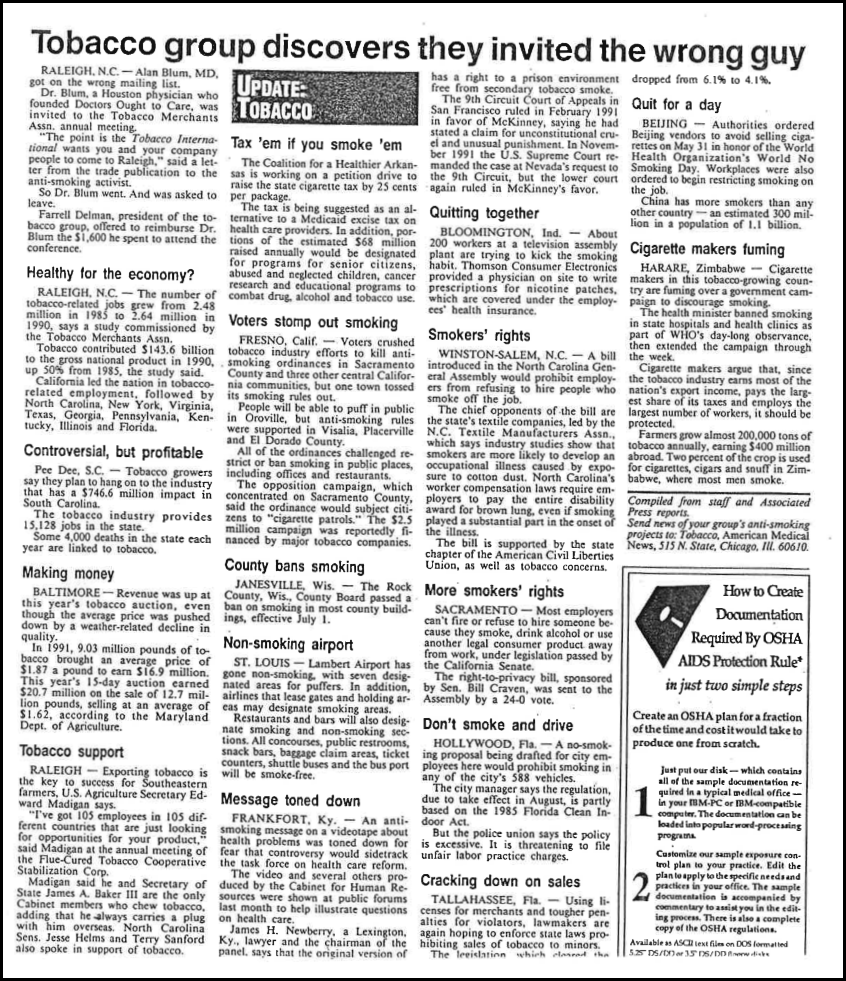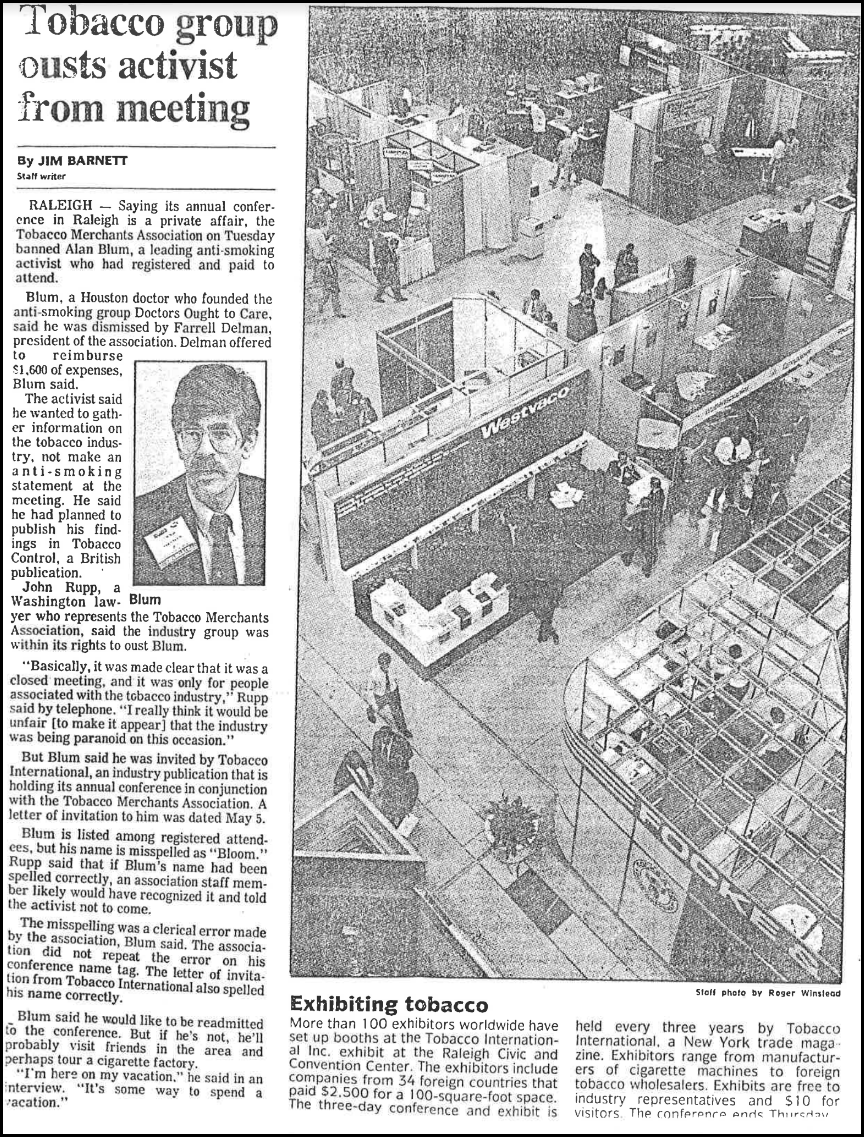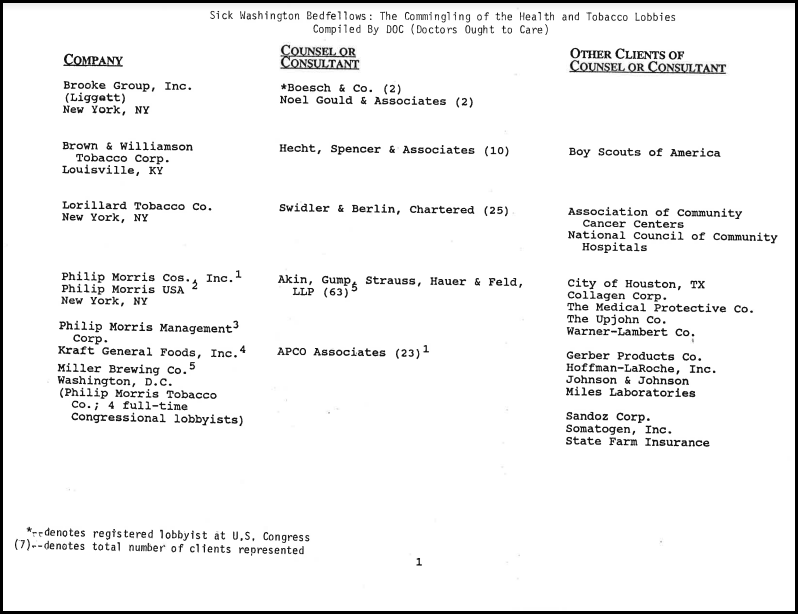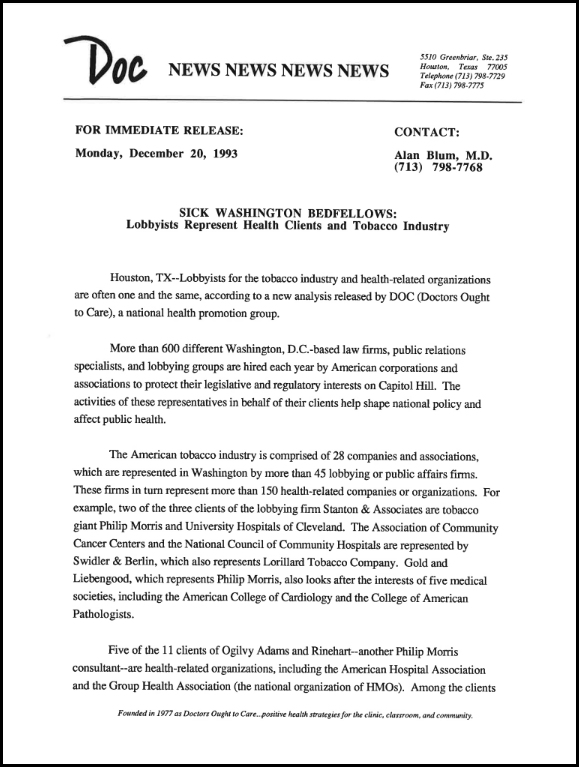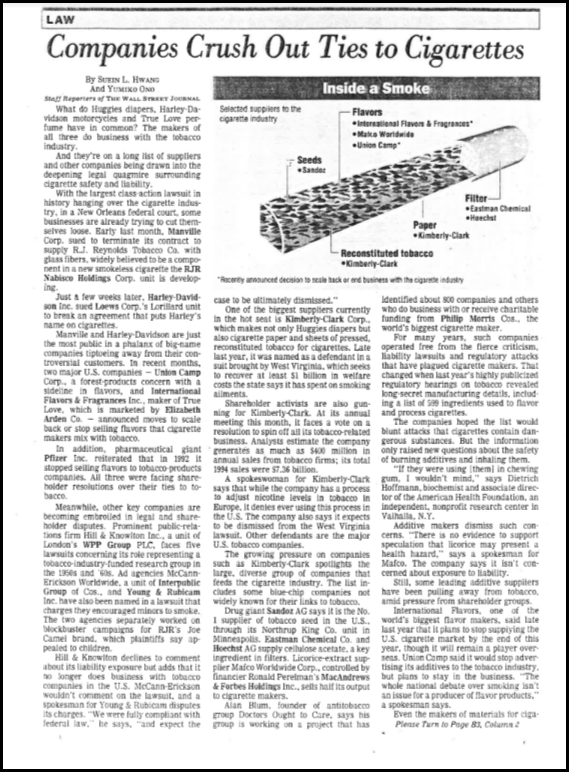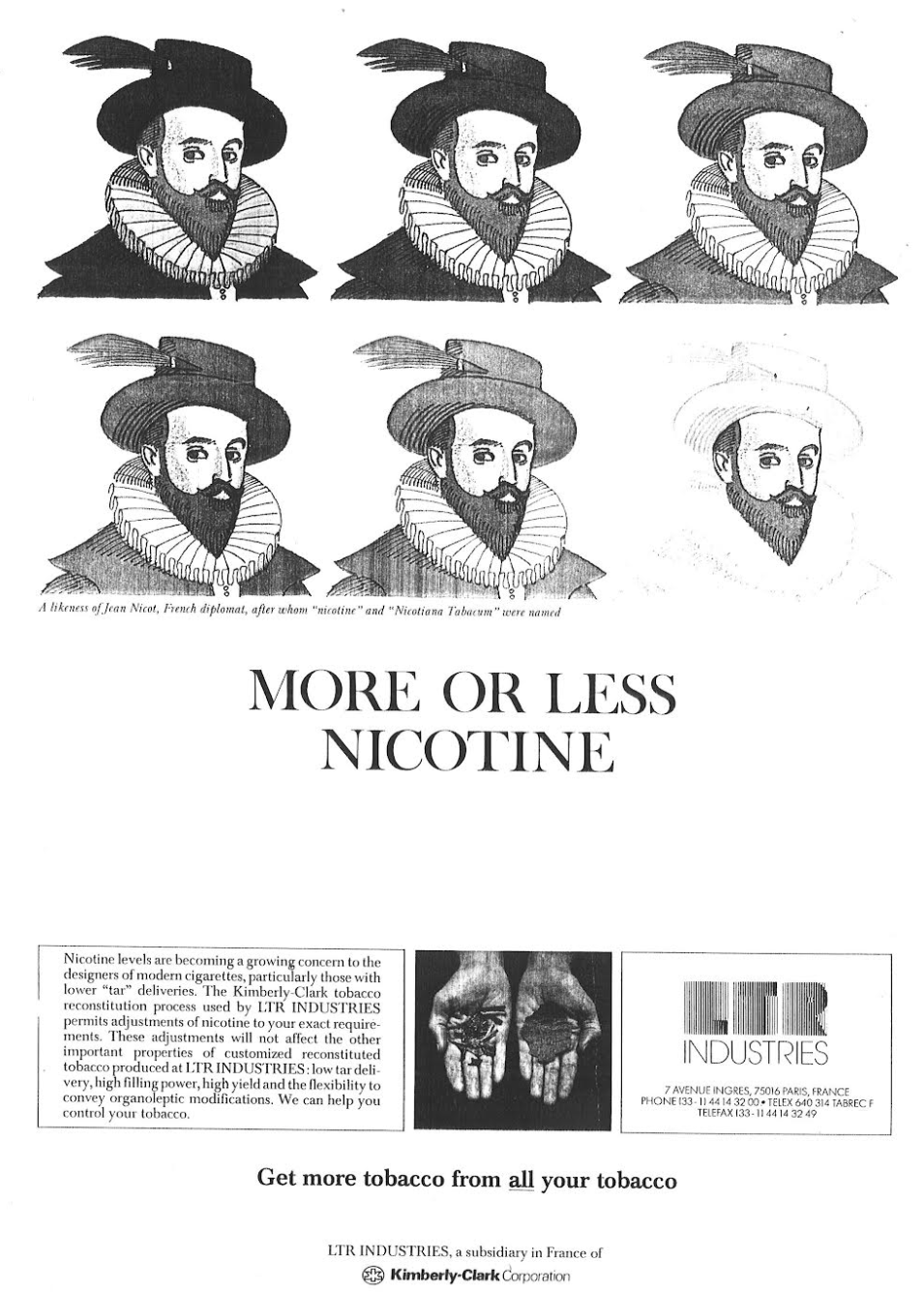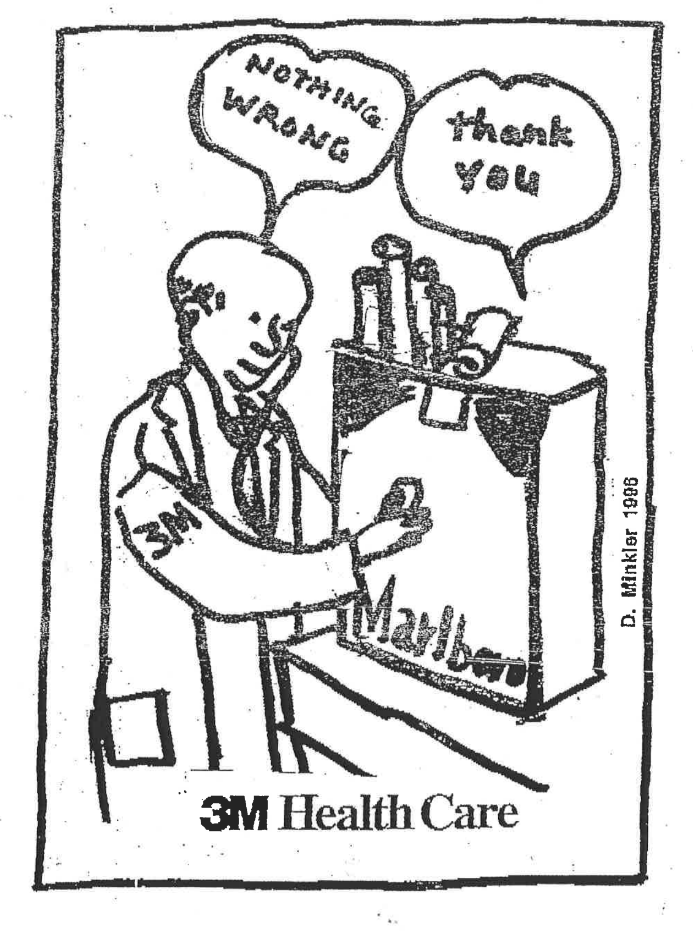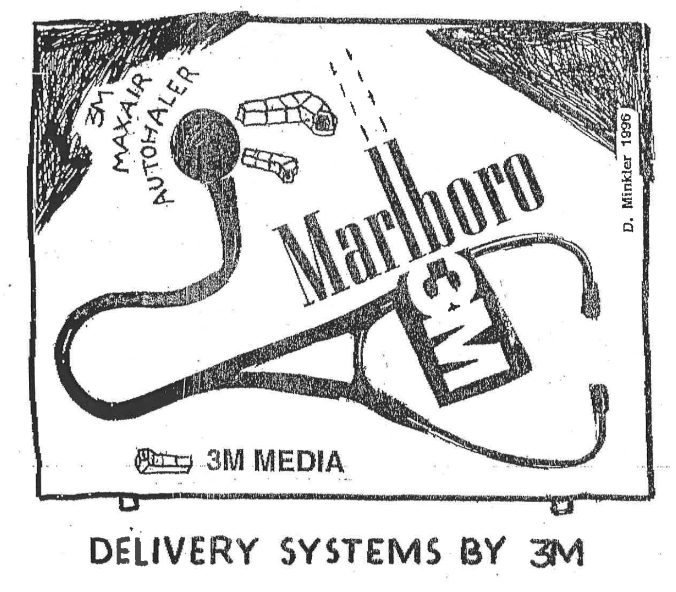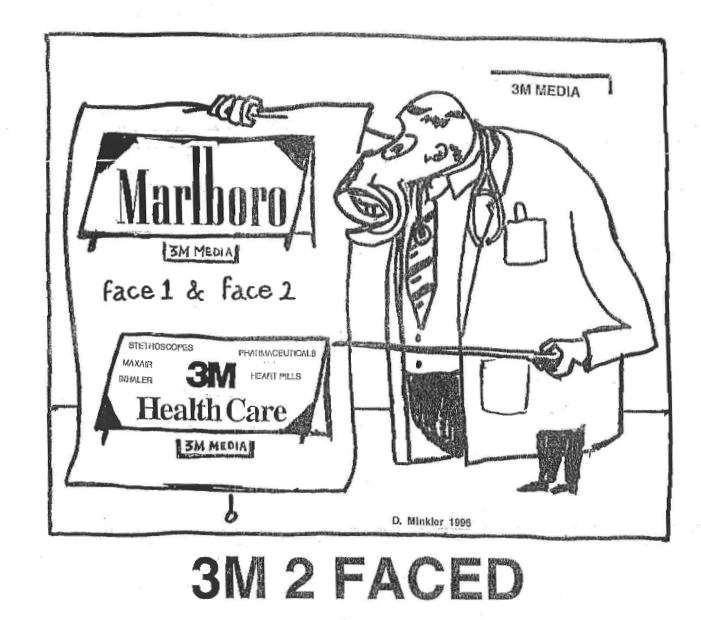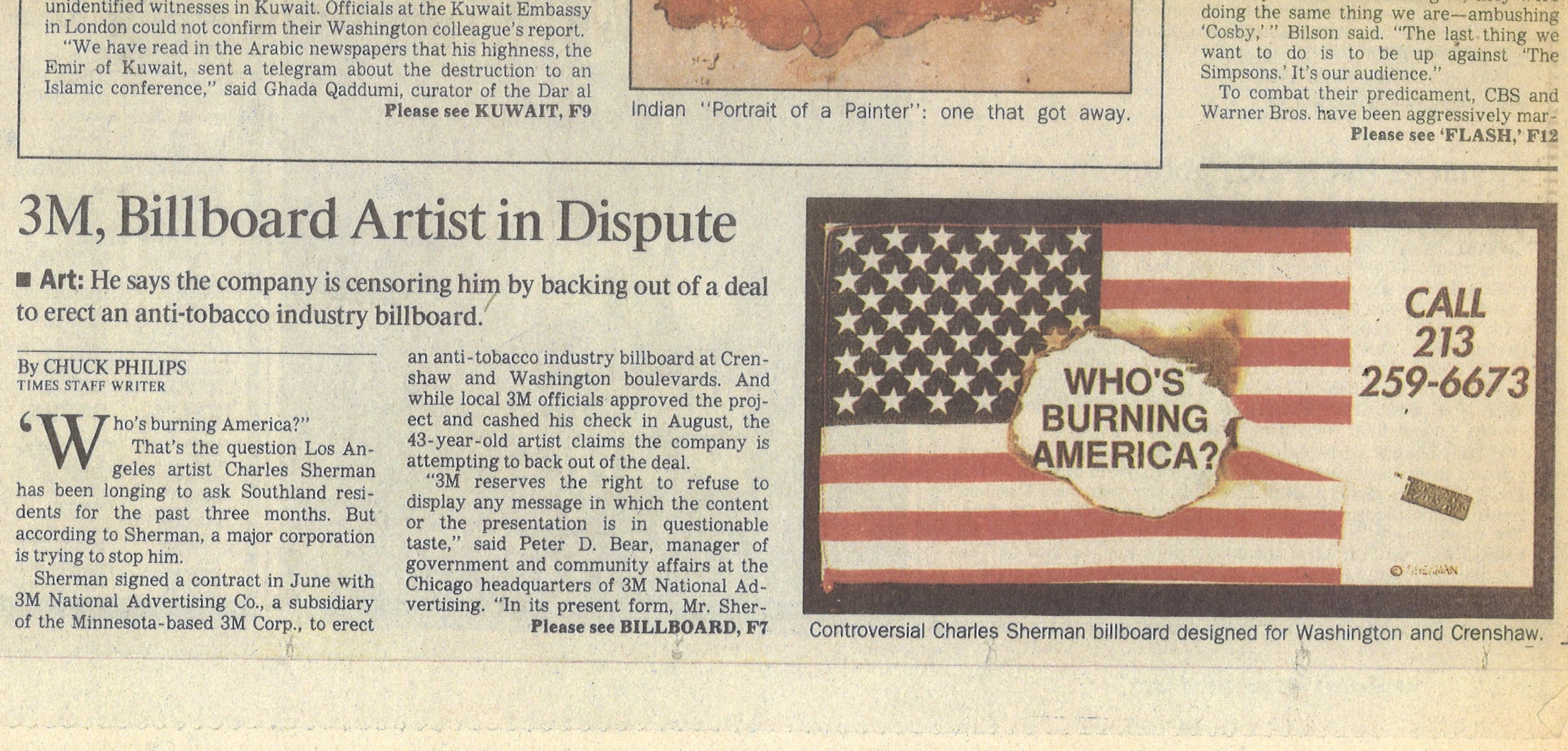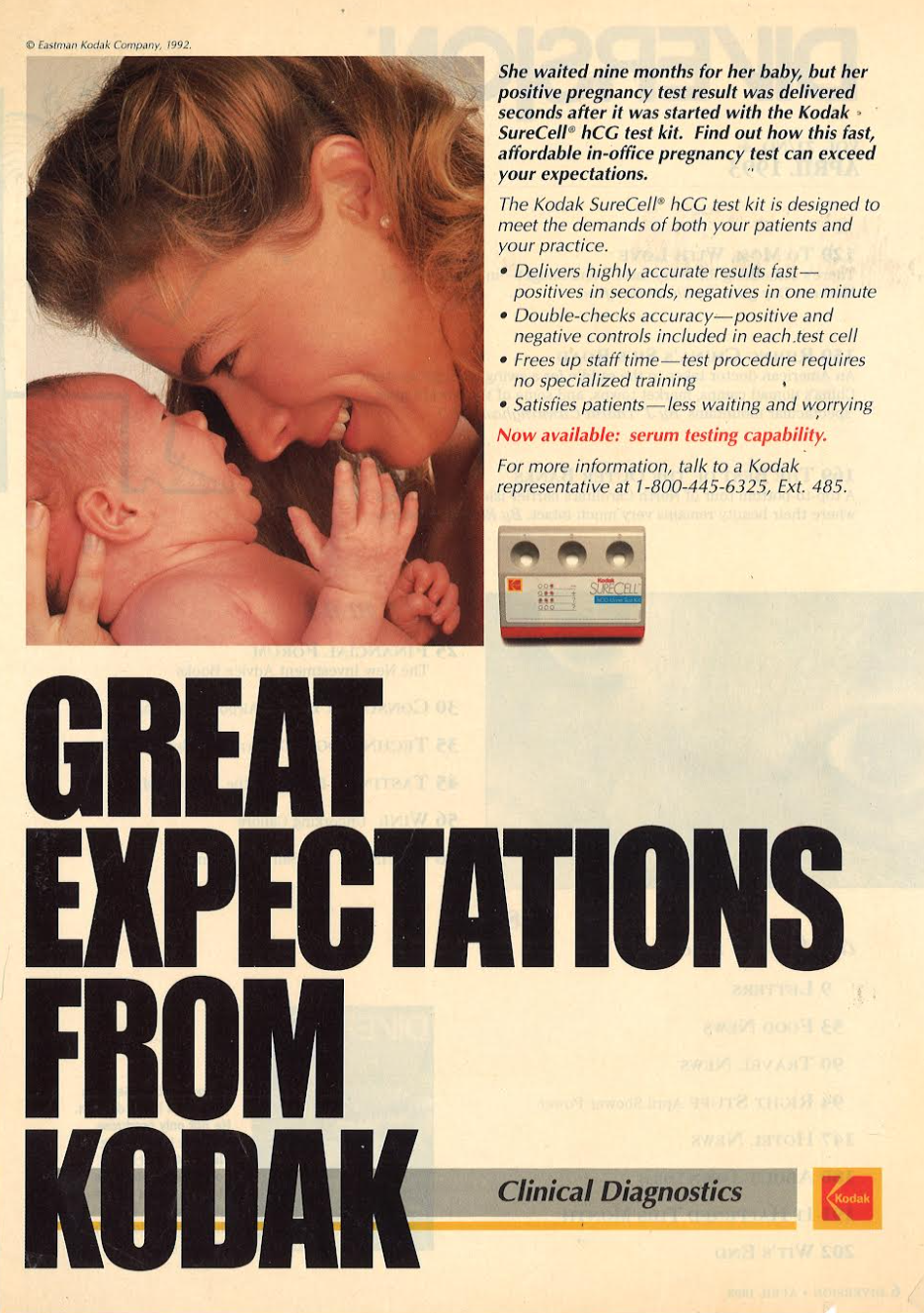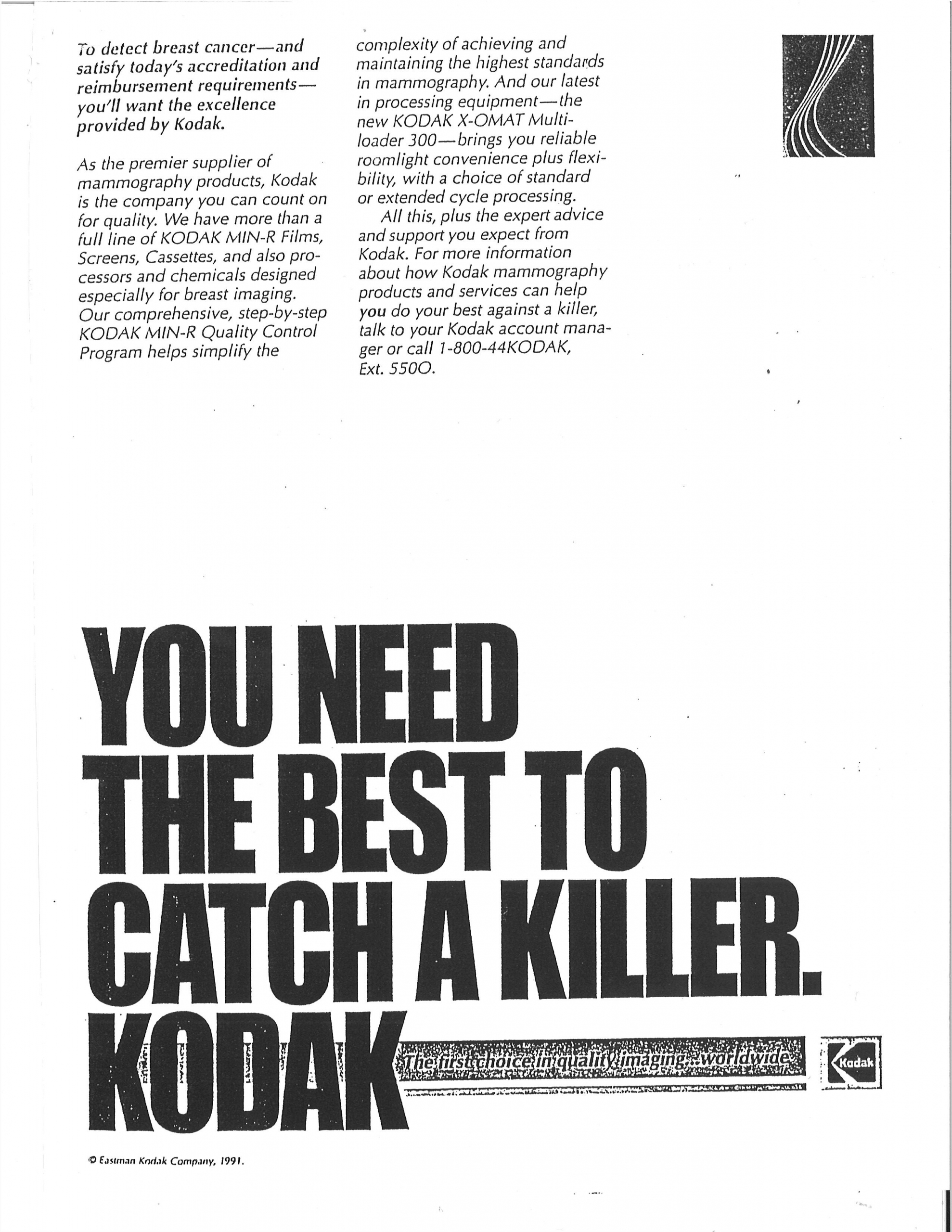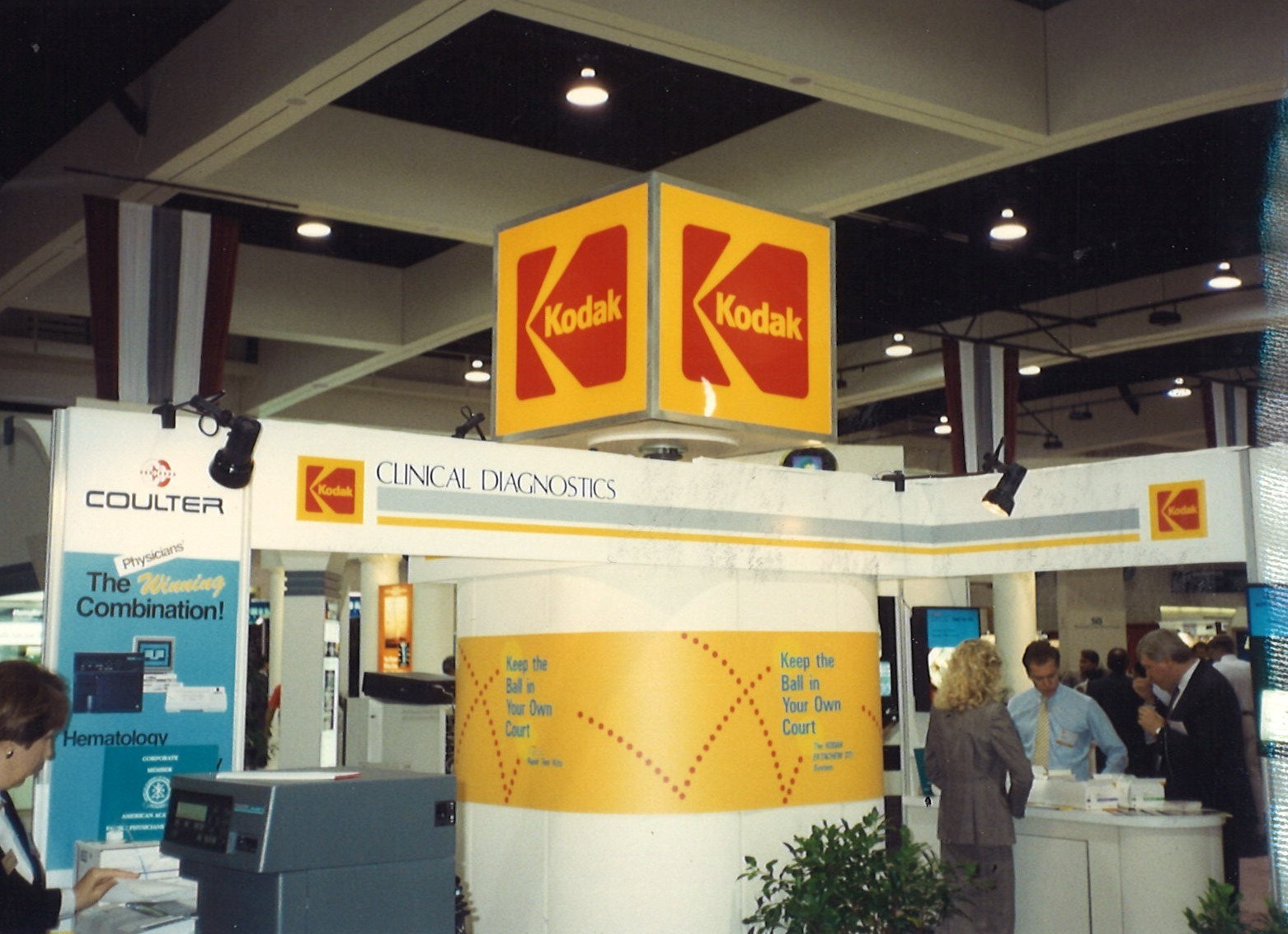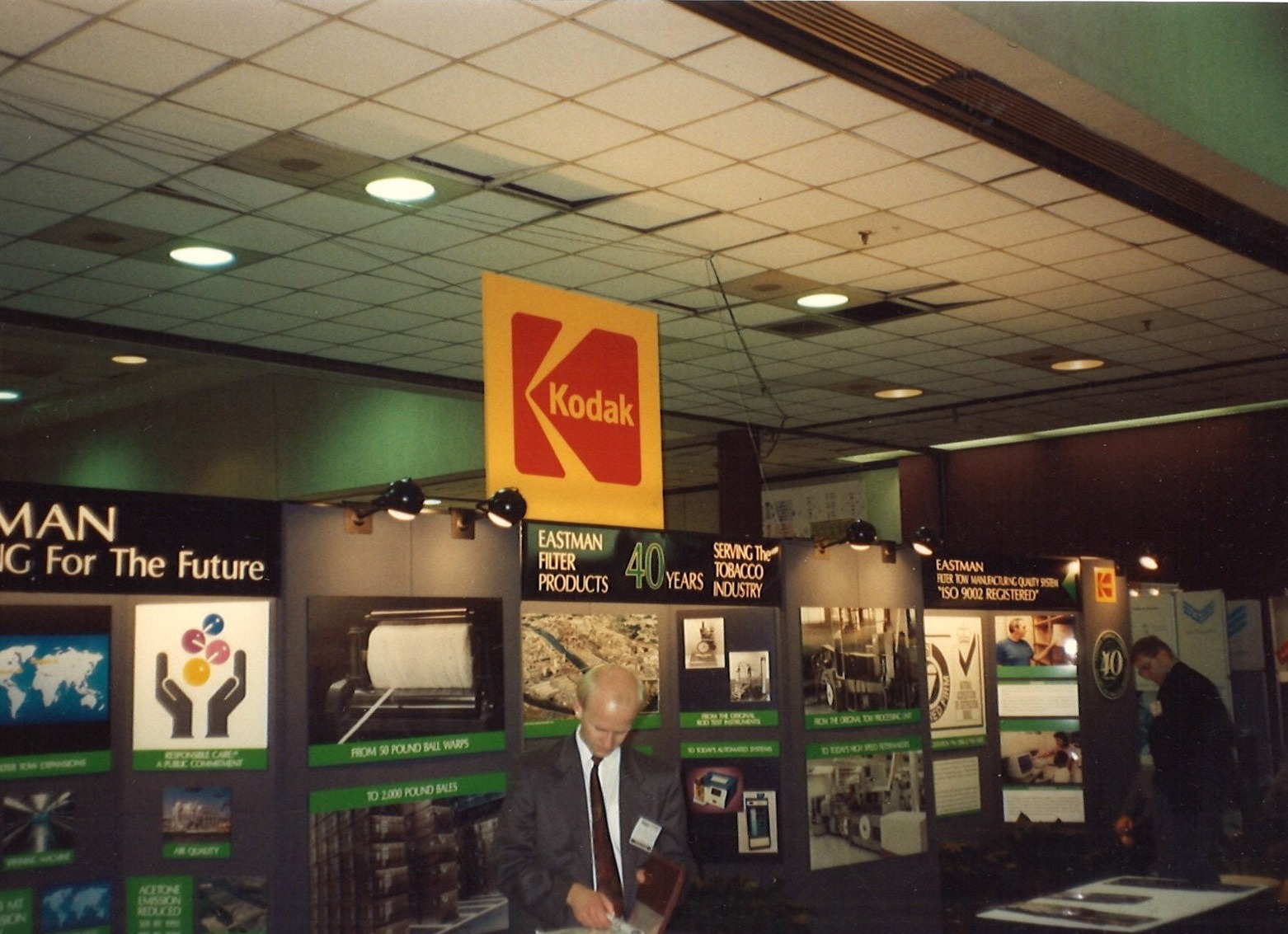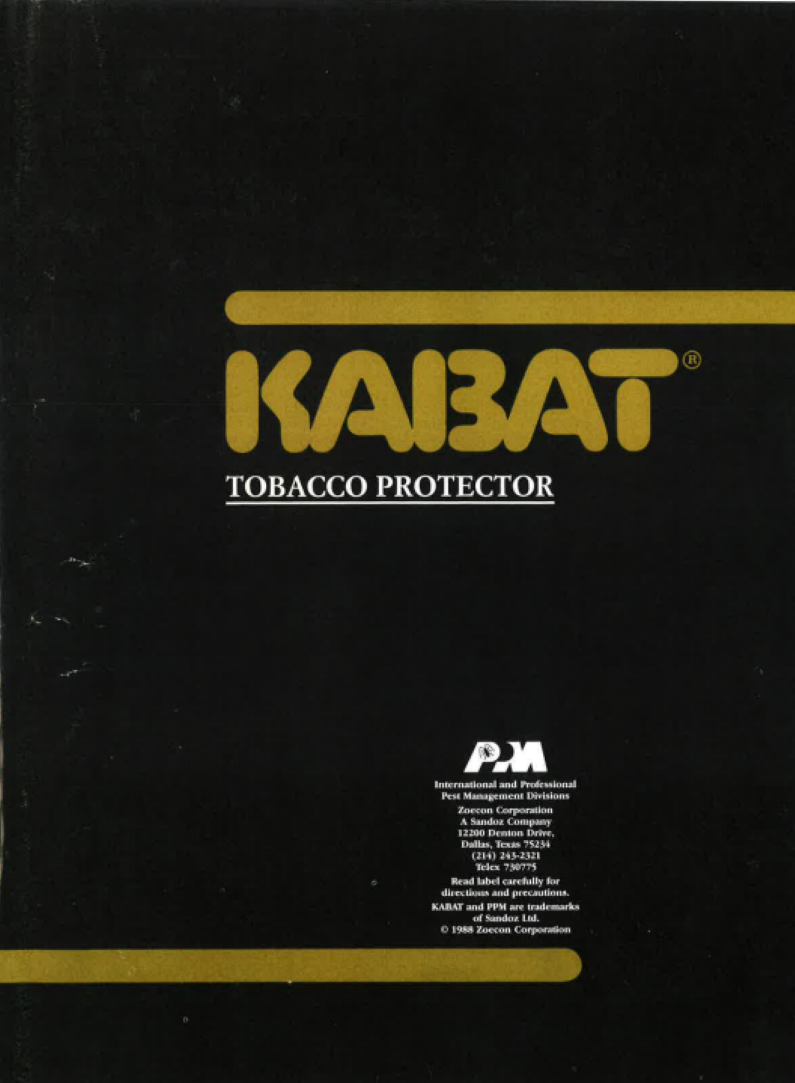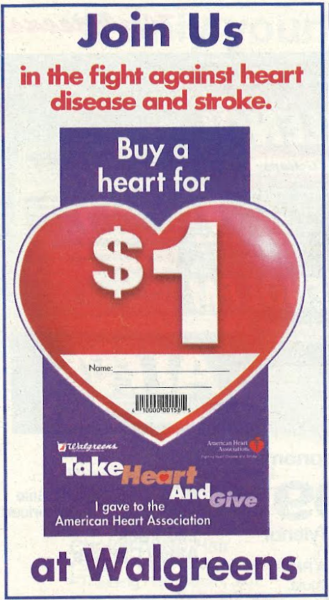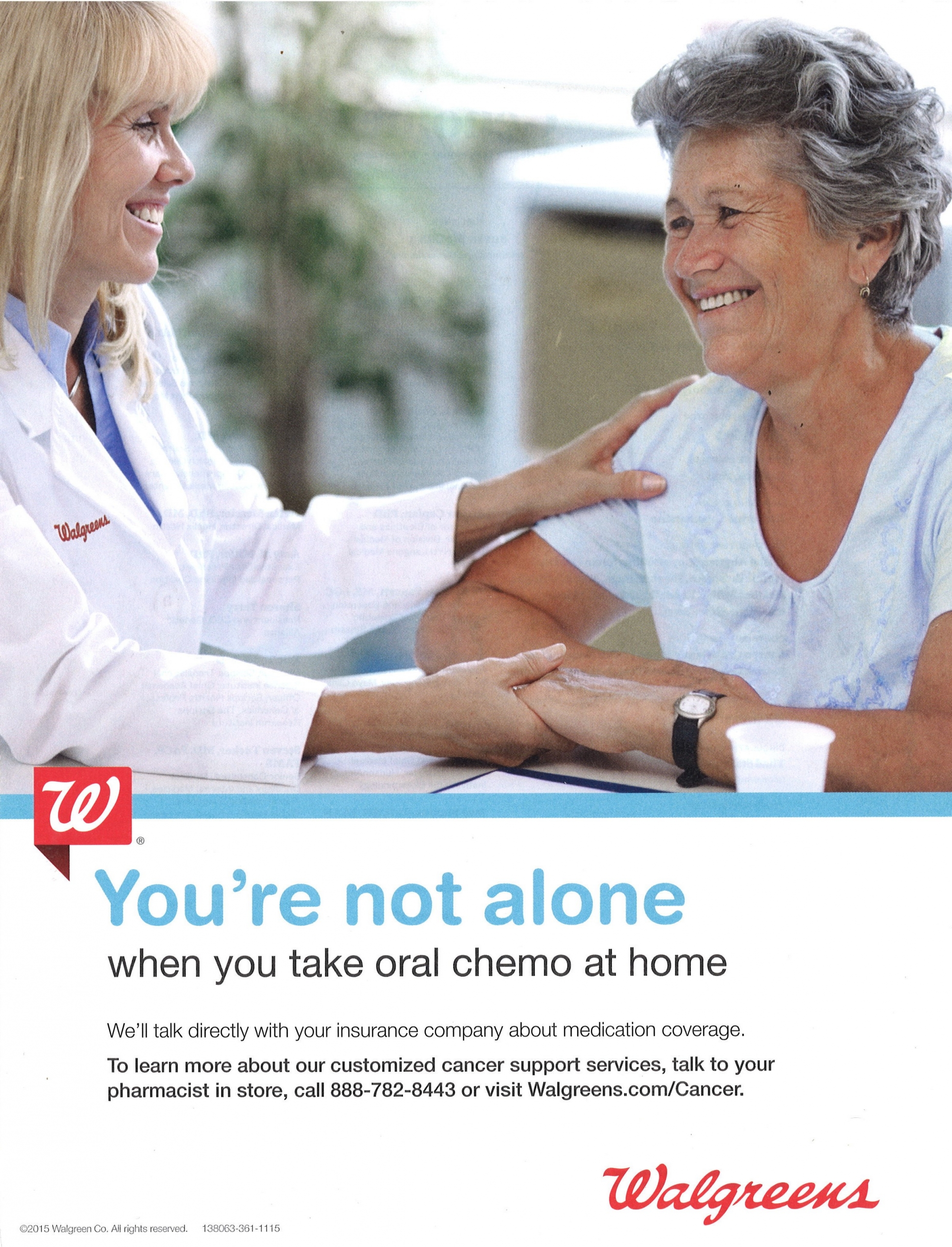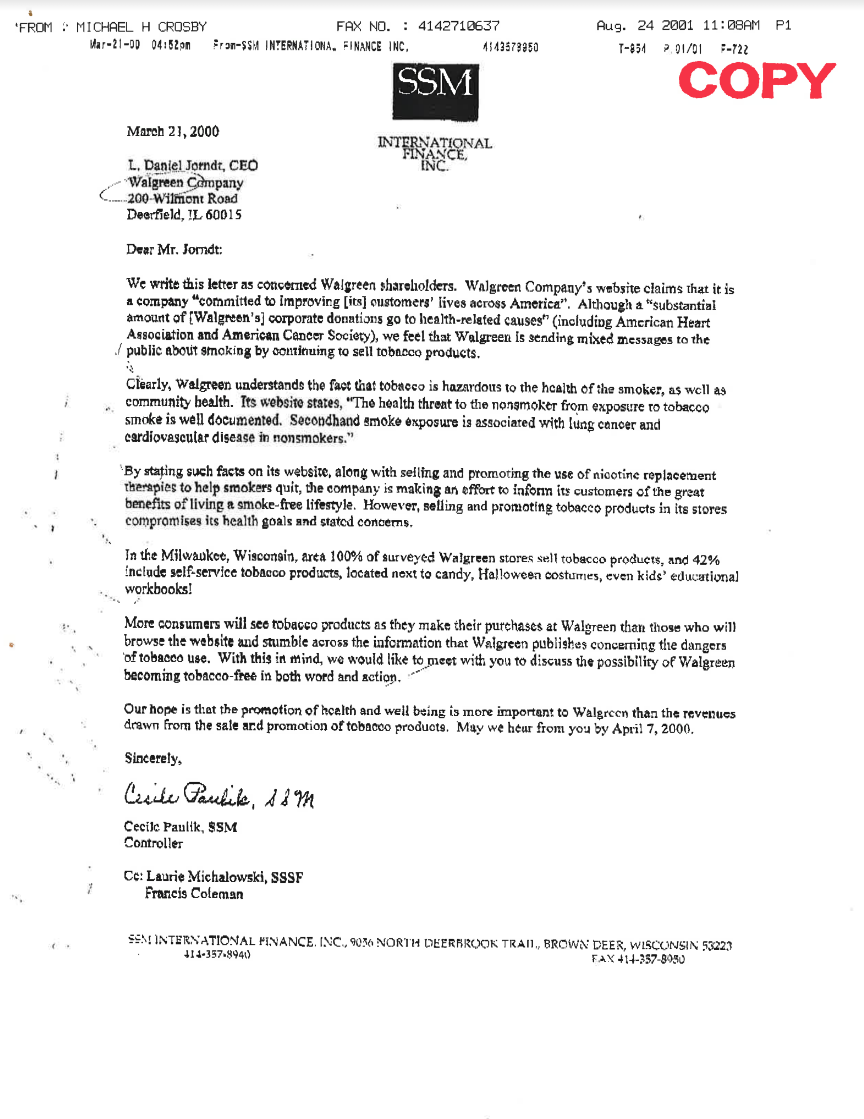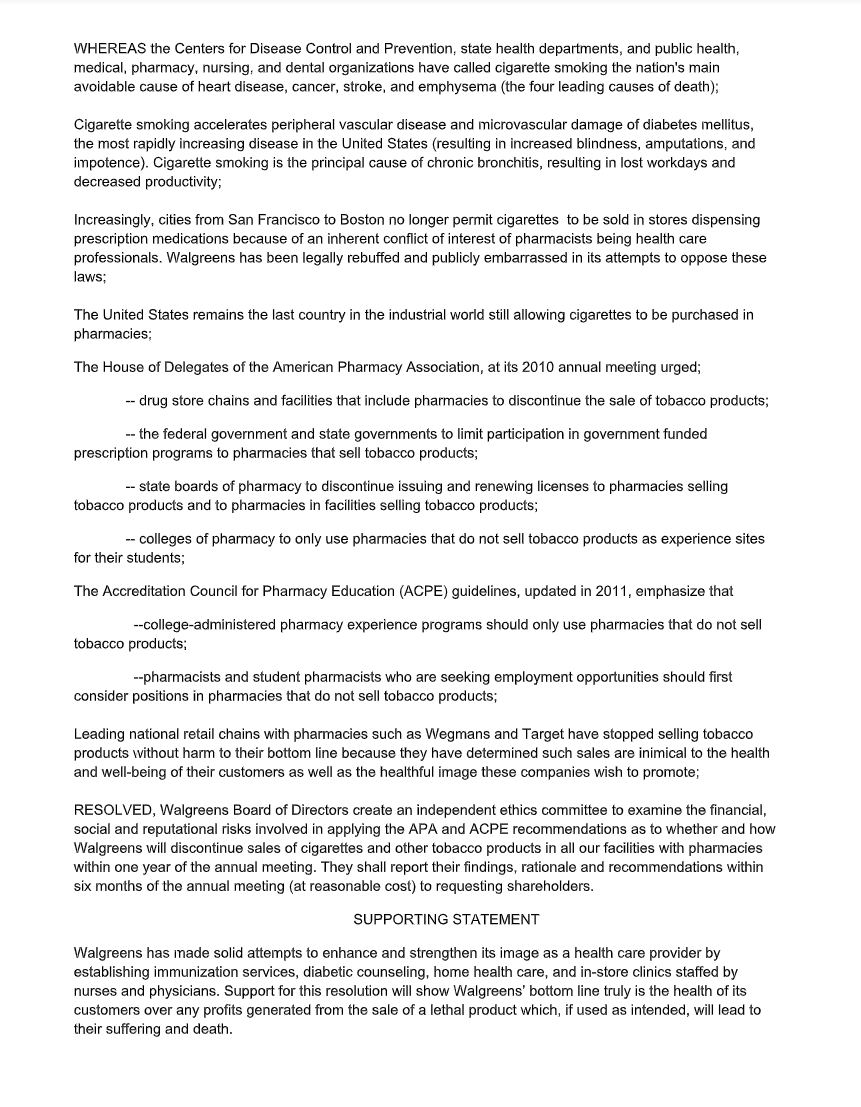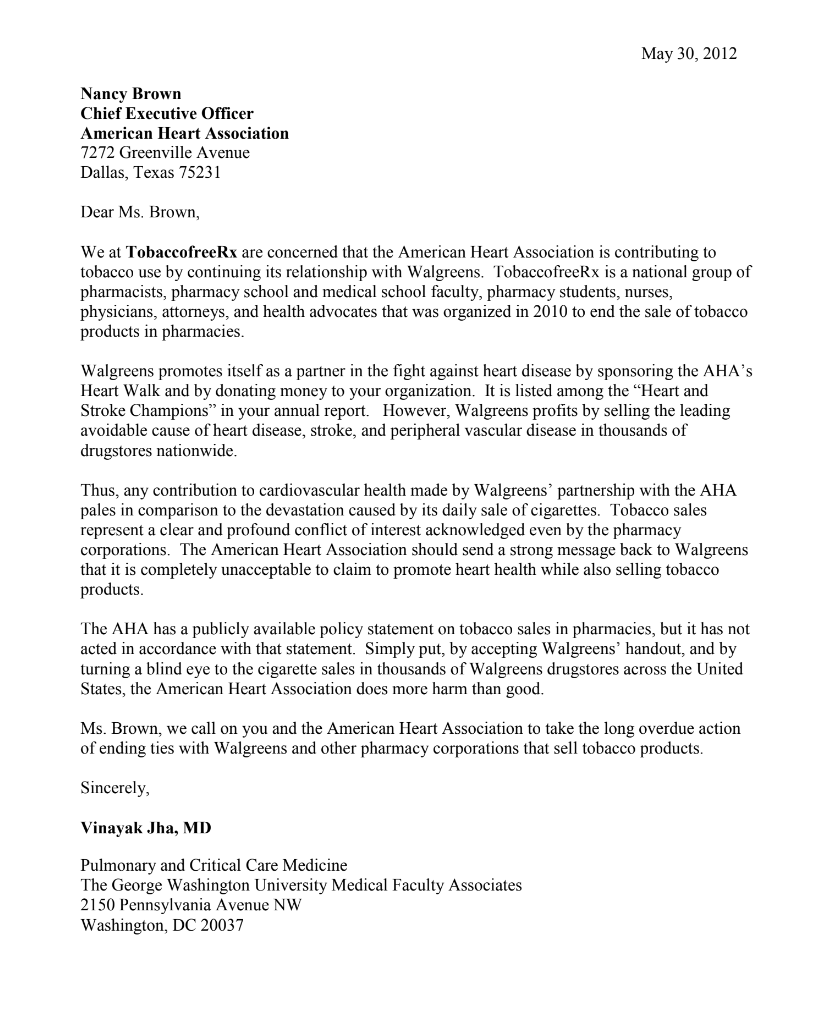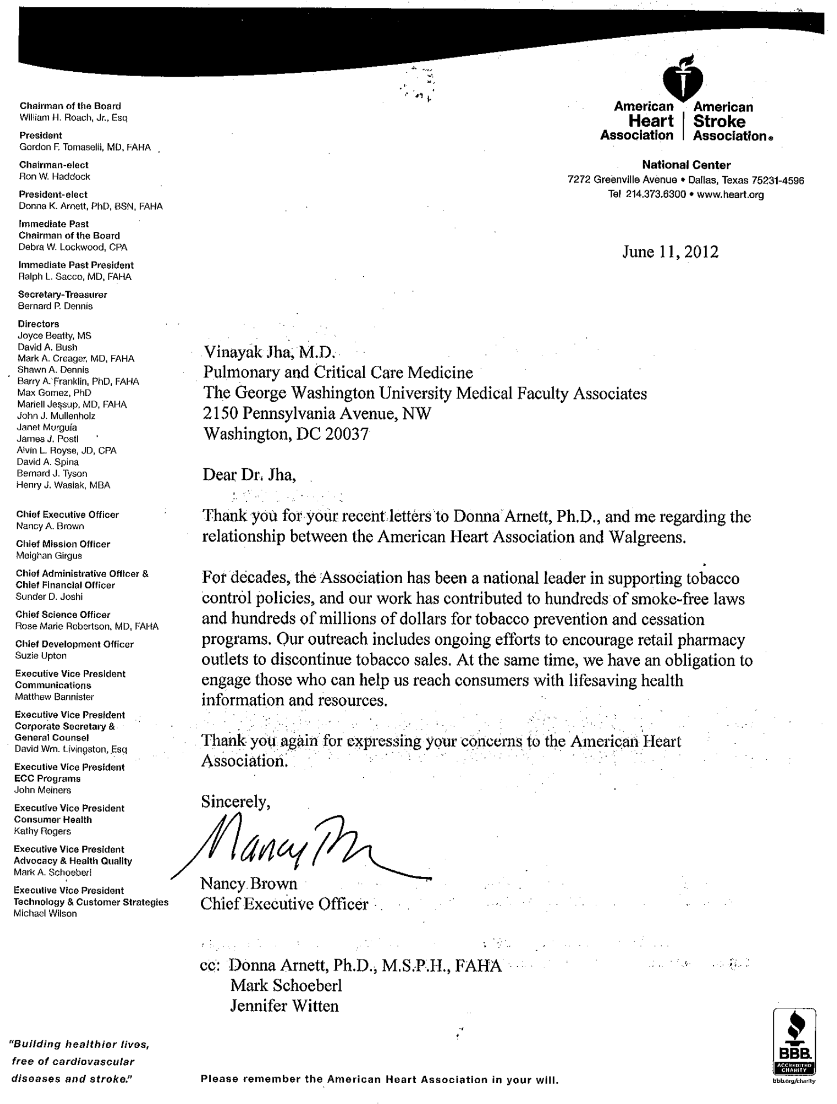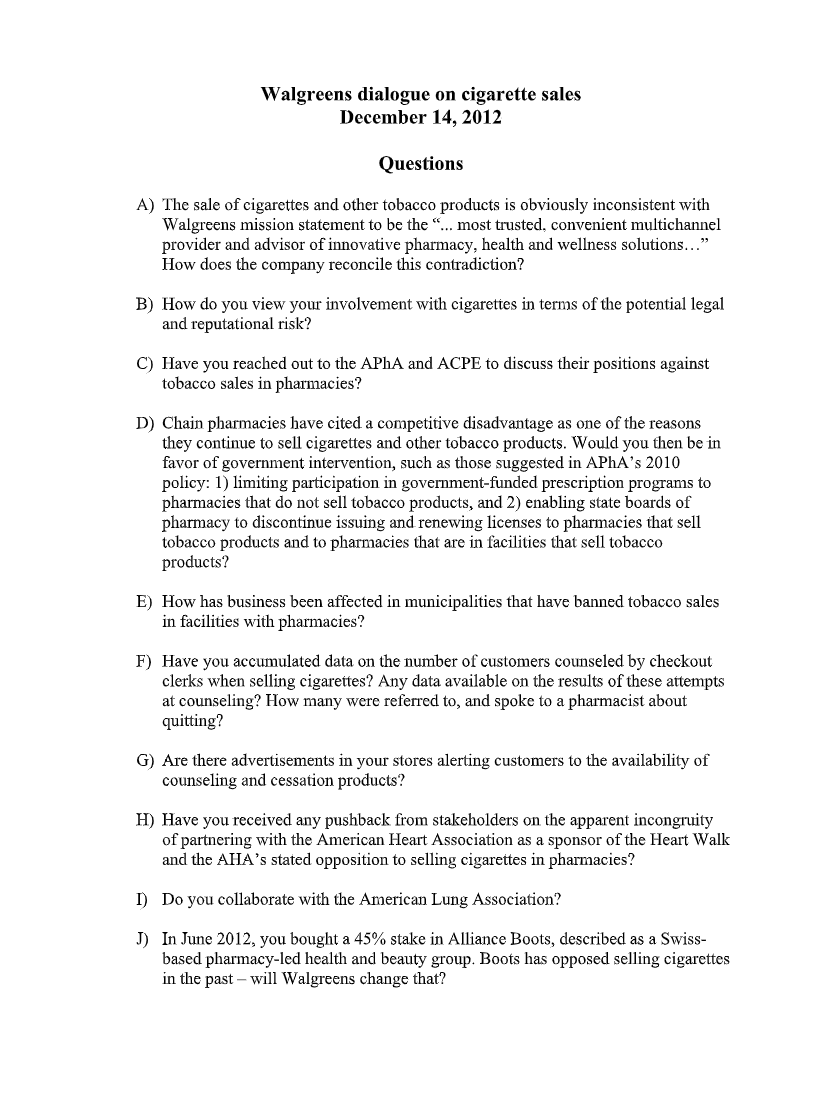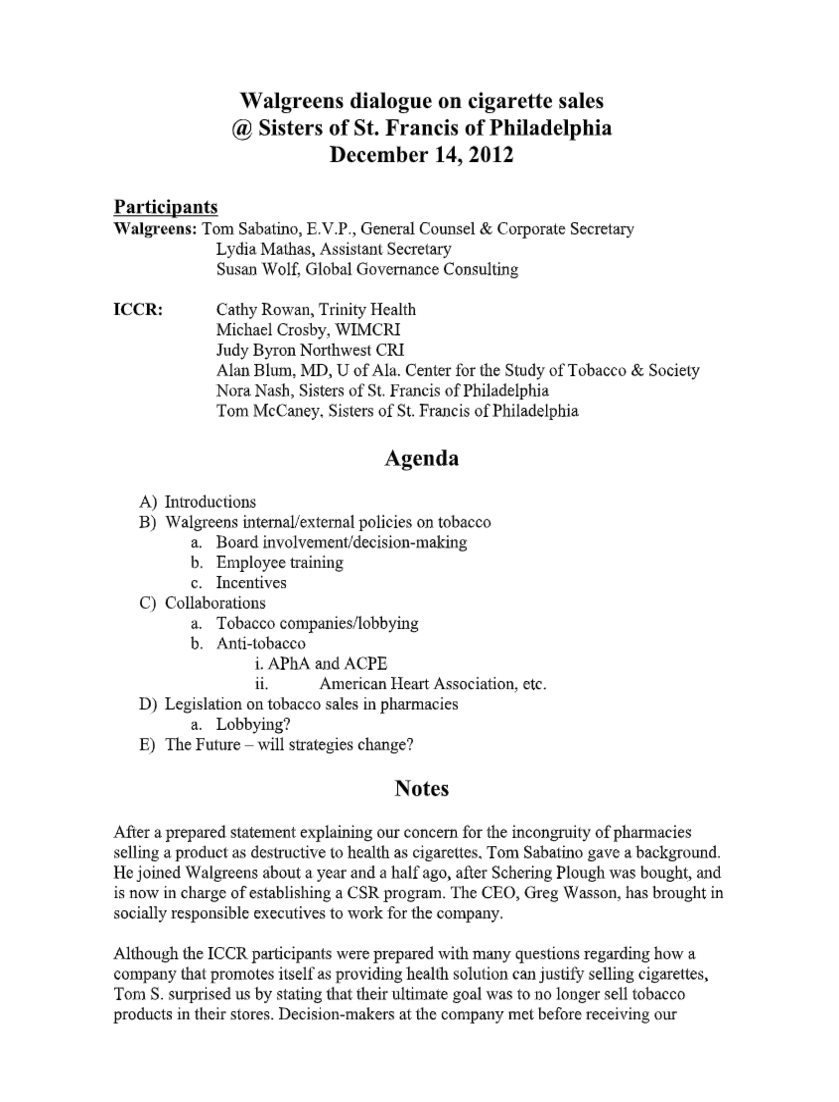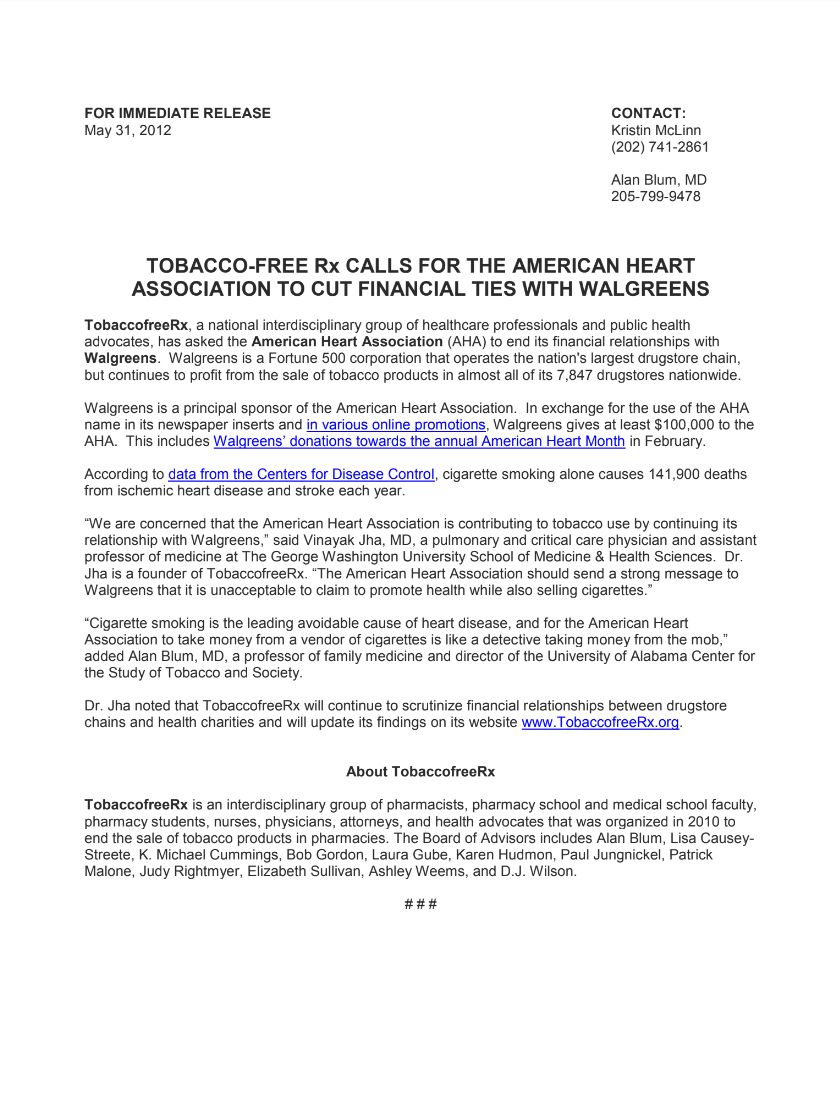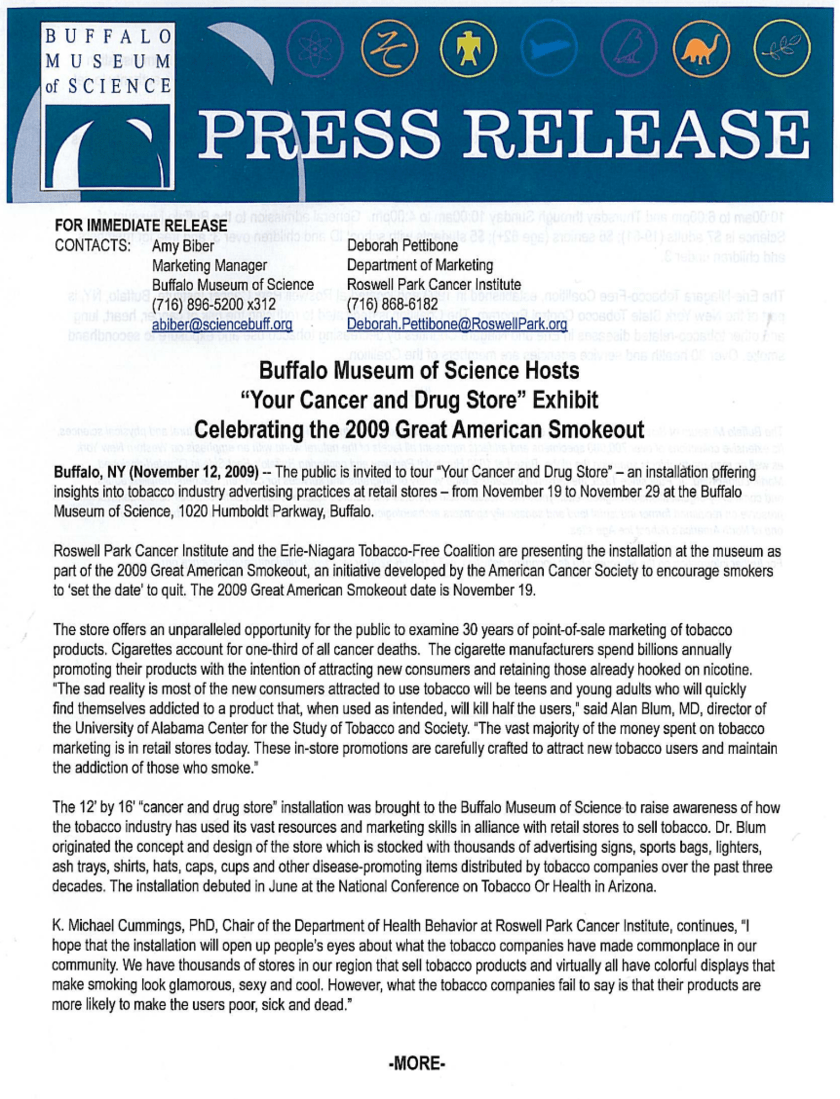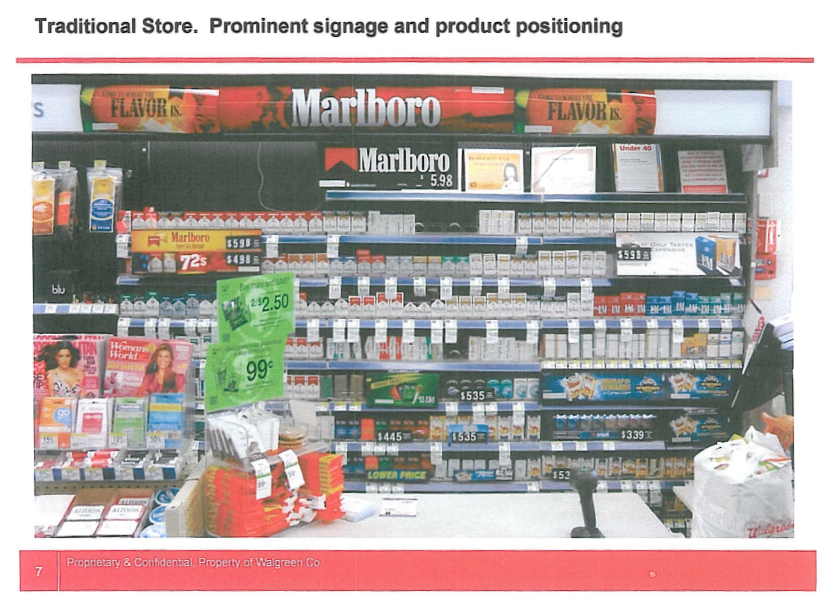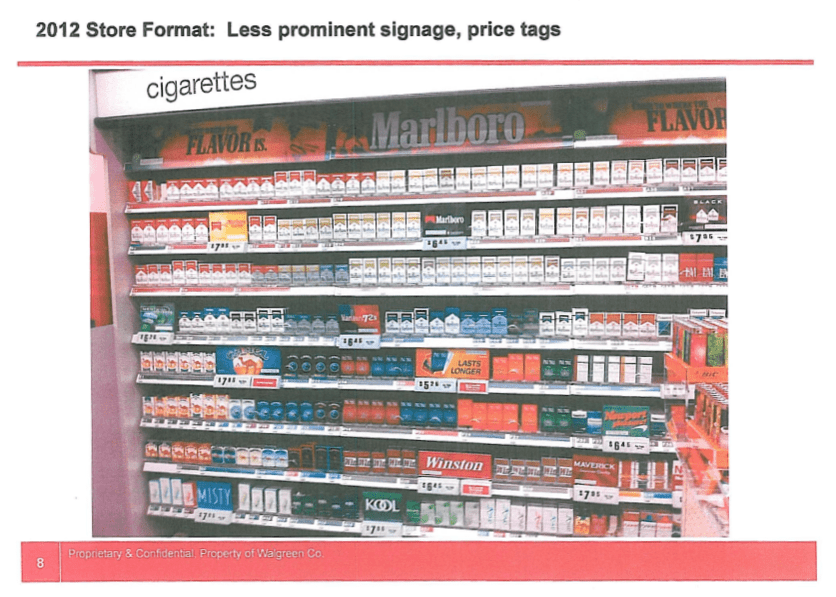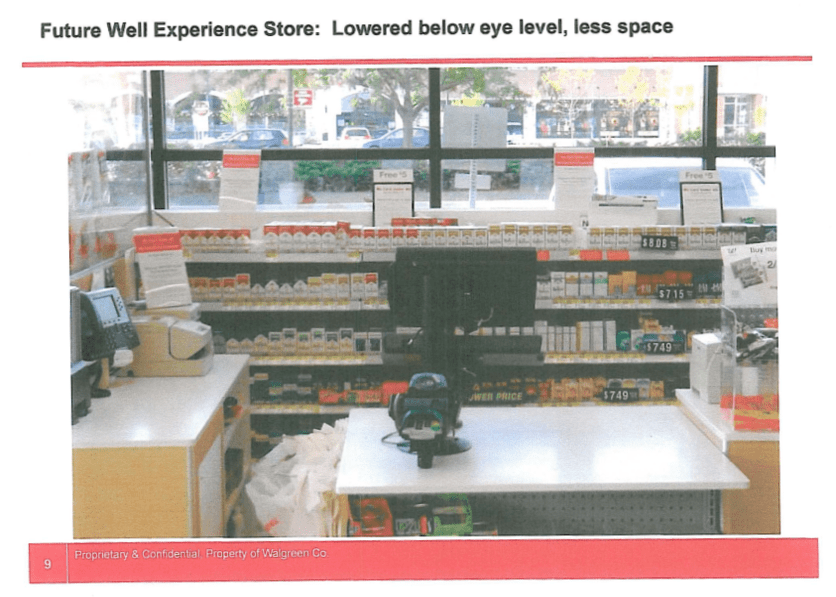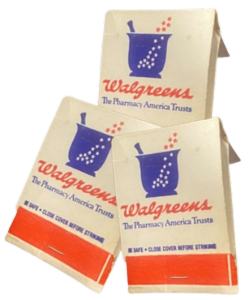Health Care Hypocrites, Part II
Other sick bedfellows of the tobacco industry, past and present
“Health Care Hypocrites, Part I” focused on SIEMENS, the global engineering conglomerate that is an innovator in health care technology…and cigarette manufacturing. Part II of this exhibition features examples of other companies and institutions that have promoted public health and well-being even as they forged close ties with the tobacco industry, many to the present day. To cite just one example, the leading corporate sponsor of the Kennedy Center, the prestigious cultural venue in the nation’s capital, is Altria, maker of Marlboro cigarettes. Virtually every major theatrical performance at the Center for the past 20 years has been sponsored in part by Altria, which heavily publicizes this tax-deductible largesse. Yet the United States Surgeon General Vivek Murthy chose to host the award ceremony for the Surgeon General’s Medallion on September 18, 2023 at the Kennedy Center. (Media Release: “The Kennedy Center Hosts Surgeon General’s Medallion Awards” https://www.kennedy-center.org/news-room/press-release-landing-page/OSG2023/)
Woven throughout the exhibitions on the website of the Center for the Study of Tobacco and Society are examples of “sick bedfellows” of the tobacco industry, both private and public, that have aided the manufacture, marketing, or sale of cigarettes, or that have supported investment in the tobacco industry or otherwise helped burnish cigarette makers’ public image. These include pharmaceutical companies, educational institutions, media corporations, arts and cultural groups, sports organizations, political parties, and even medical societies. The examples of entities whose logos are listed above–SIEMENS, Kimberly-Clark, KODAK, The New York Times, The Kennedy Center, The University of Virginia, Pfizer, 3M, Time Inc, Conde Nast, TIAA CREF, DiversityInc, and Walgreens–are but the tip of the iceberg. In recent years Altria has portrayed itself as a veritable guardian of public health, touting the relative safety of its non-combustible nicotine products and hiring officials from the FDA, the American Legacy Foundation, and even the former director of the World Health Organization’s tobacco control program to promote tobacco harm reduction.
–Alan Blum, MD
Curator, Health Care Hypocrites and a 1988 Recipient of the Surgeon General’s Medallion awarded by Dr. C. Everett Koop for a career dedicated to countering the tobacco industry and tracking it like a parasitic disease
Photographs of Alan Blum, MD at the tobacco industry conference sponsored by trade journal Tobacco International
June 3, 1992
“An international conference of the tobacco industry and its allies: one delegate’s minority report” (6 pages)
Journal article by Alan Blum, MD
Tobacco Control, Volume 2, pages 50-55
1993
Invitation from George E. Lockwood, Publisher, Tobacco International, to Alan Blum attend the 4th Annual Tobacco International Exhibition/Conference in Raleigh, North Carolina, June 2-4, 1992.
May 5, 1992
Thank you letter from George Feng, Circulation Director, Tobacco International, for attending the 4th Tobacco International Exhibition/Conference.
1992
“Tobacco group discovers they invited the wrong guy”
News article
American Medical News
June 1992
“Tobacco group ousts activist from meeting”
Article by Jim Barnett
Raleigh News & Observer
June 4, 1992
“Sick Washington Bedfellows: The Commingling of the Health and Tobacco Lobbies” (11 pages)
Supplement to press release by DOC
December 20, 1993
“SICK WASHINGTON BEDFELLOWS:
Lobbyists Represent Health Clients and Tobacco Industry” (2 pages)
Press release by DOC (Doctors Ought to Care)
December 20, 1993
“The American tobacco industry is comprised of 28 companies and associations, which are represented in Washington by more than 45 lobbying or public affairs firms. These firms represent more than 150 health-related companies or organizations. For example, two of the three clients of the lobbying firm of Stanton & Associates are tobacco giant Philip Morris and University Hospitals of Cleveland. The Association of Community Cancer Centers and the National Council of Community Hospitals are represented by Swidler & Berlin, which also represents Lorillard Tobacco Company. Gold and Liebengood, which represents Philip Morris, also looks after the interests of five medical societies, including the American College of Cardiology and the College of American Pathologists.
“Five of the 11 clients of Ogilvy Adams and Rinehart—another Philip Morris consultant—are health-related organizations, including the American Hospital Association and the Group Health Association (the national organization of HMOs). Among the clients of Griffin, Johnson and Associates are Blue Cross and Blue Shield, Yale-New Haven Hospital, and The Tobacco Institute. R.J. Reynolds, Tobacco Company, Pfizer pharmaceuticals, Northwestern Mutual Life Insurance Company, and Stanford University all share the Washington consulting from of Wunder, Diefenderfer, Cannon & Thelen. Similarly, in addition to aiding the United States Tobacco Company (UST), O’Connor & Hedden represents no fewer than eight health-related organizations.”
“This helps explain the inactivity of so many health groups and companies in countering the single most preventable cause of death, disease, and high medical costs: tobacco…”
“City Under Siege: MD Anderson Cancer Center Researchers Accept Nearly $20 Million from Cigarette Makers in 1994” (07:08)
Investigative report by Ned Hibberd
Fox 26 TV, Houston, Texas
1995
“They’re taking money from an industry that kills 418,000 a year in the U.S. and 3 million worldwide…The question you have to ask yourself [as a researcher] is whether the research you’re doing is as important as the benefit the tobacco industry is getting from using your name and your institution’s name when they go in front of courts, when they go in front of the press, and when they go in front of Congress”
–Joel Dunnington, MD, MD Anderson Faculty Senate President in the late-1990s
“Companies Crush Out Ties to Cigarettes” (2 pages)
Law column by Suein L. Hwang and Yumiko Ono
The Wall Street Journal
April 4, 1995
“The list includes some blue-chip companies not widely known for their link to tobacco…
“…pharmaceutical giant Pfizer, Inc. reiterated that in 1992 it stopped selling flavors to tobacco-products companies… [Curator’s note: Pfizer owned the French company CAL, a major producer of essential oils for tobacco flavors]
“[Swiss] Drug giant Sandoz AG says it is the No. 1 supplier of tobacco seed in the U.S. through its Northrup King Co. unit in Minnesota…[Curator’s note: in 1996, Novartis and Swiss pharmaceutical company CIBA-Geigy merged to form Novartis in then largest corporate merger in business history]
“[German pharmaceutical company] Hoechst AG [supplies] cellulose acetate, a key ingredient in filters..
[Curator’s note: In 1999 Hoechst AG merged with France’s Rhône-Poulenc to became Aventis Deutschland; in 2004 Aventis merged with Sanofi-Synthélabo to become Sanofi-Aventis pharmaceuticals group]
“One of the biggest suppliers currently in the hot seat is Kimberly-Clark Corp., which makes not only Huggies diapers but also cigarette paper and sheets of pressed, reconstituted tobacco for cigarettes. Last last year, it was named as a defendant in a suit brought by West Virginia, which seeks to recover at least $1 billion in welfare costs the state says it has spent on smoking ailments…
“Alan Blum, founder of the anti-tobacco group Doctors Ought to Care, said his group is working on a project that has identified about 800 companies and others who do business with or have received charitable funding from Philip Morris Cos., the world’s biggest cigarette maker…”

